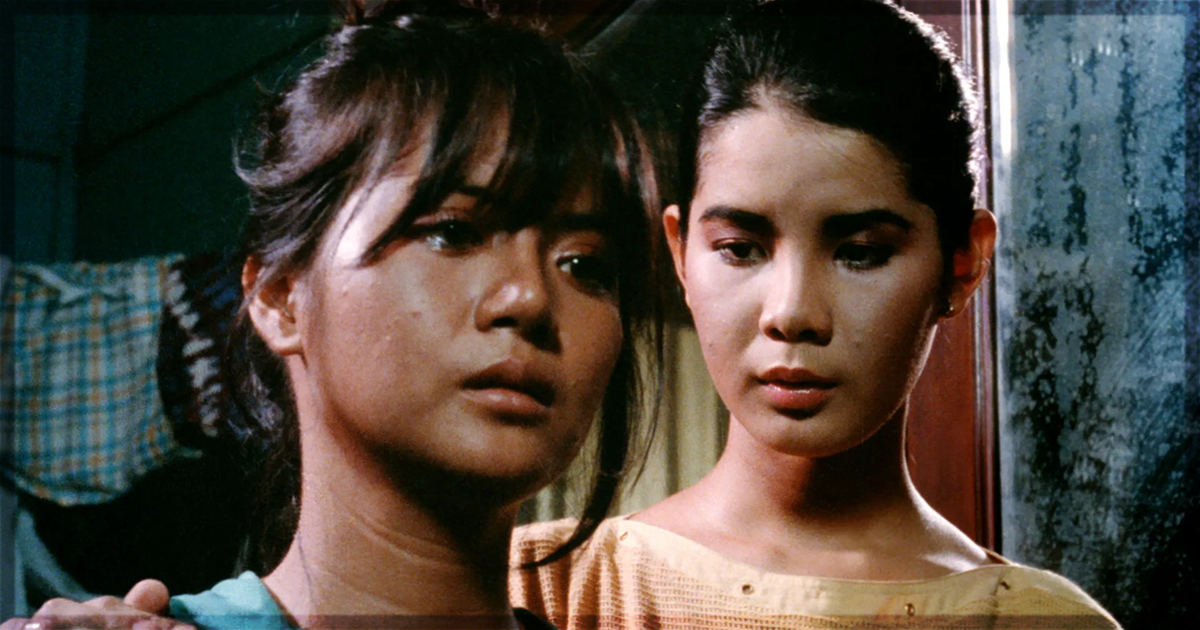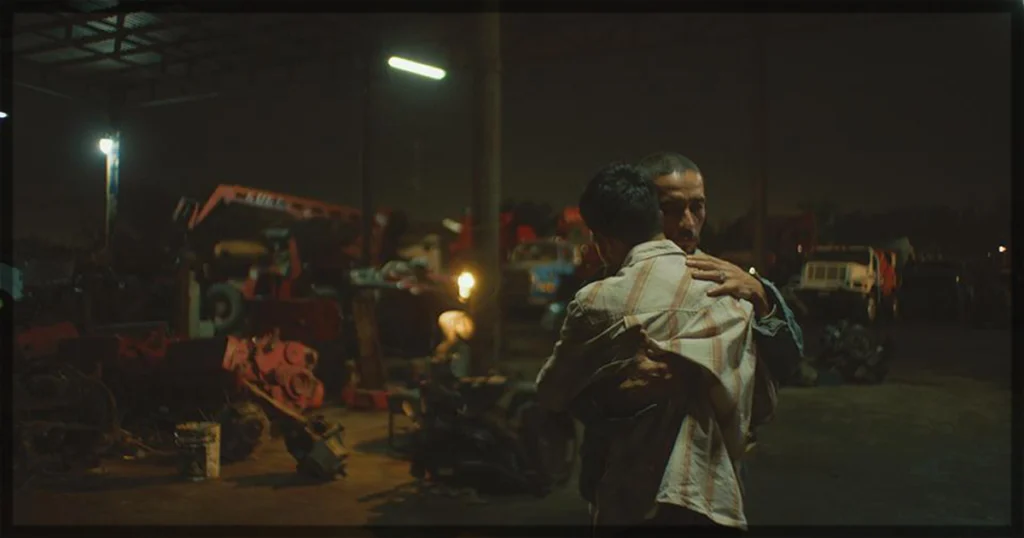Made in 1982, restored and remastered by ABS-CBN Film Restoration Project in 2016, and released by Kani Releasing on Blu-ray in 2022, Lino Brocka’s Cain and Abel now plays on The Criterion Channel as part of the streaming service’s retrospective on the acclaimed Filipino director.
A two-fisted riff on the timeless biblical tale of sibling rivalry and jealousy, the movie unfolds as part soapy family melodrama and part glorious action thriller centered on two brothers, Lorenzo (Phillip Salvador) and Ellis (Christopher De Leon), competing for the love and attention of their mother, Señora Pina (Mona Lisa), who essentially plays God not just among her children but in the entire household and her hacienda, following the demise of her husband, apparently caused by a major fight between her sons.
The rift has only intensified throughout the years as the firstborn is forced to discontinue his studies to tend the farm, while the youngest, the matriarch’s favorite, is sent to Manila to pursue college education. Lorenzo speaks Tagalog while Ellis brandishes his English upon his return to the rural town; language doubling as Brocka’s articulation of class and center-margins divide in the film. Tagging along with Ellis is his unabashedly blunt fiancée Zita (Carmi Martin), who instantly gets criticized by Señora Pina. Tensions escalate when Ellis insists on inheriting the land his brother has been taking care of, as he and Zita prepare for their wedding and future. Lorenzo of course objects the move and immediately stakes his claim, resulting in a family feud taken to grim and gruesome extremes.
The movie opens with a close-up shot of two spiders fighting and forcing each other off a stick before the camera shifts to a higher angle showing two children, Lorenzo’s sons, at play in a front yard, which recalls the ingenious introduction of Sam Peckinpah’s 1971 classic Straw Dogs. This opening at first seems inconsequential until a character, Robert (Michael Sandico), Zita’s gung-ho brother, an hour into the movie, openly cites the psychological thriller as his manifesto for vengeance. “Have you seen Straw Dogs?” he asks the faint-hearted Ellis. “Remember what Dustin Hoffman did to the men who raped his wife? That’s what I’m going to do to them! I will blow their brains out and feed it to the dogs.”
Owing to the miserablist screenplay by Ricky Lee, this offers the film a stark symbolism for masculinity in crisis, which inescapably rolls into an all-out turf war. While Lorenzo and Ellis are contrastingly presented as domineering and docile, they both reflect an uber-masculine ideology and its attendant violence. Cut from the same cloth, so to speak. Salvador and De Leon are both perfect for the roles, then matinee idols who seem totally game to be goaded into the film’s proclivity for dramatics and gunfire. Of course this is Brocka commenting on the macho feudal order in the Philippines as well as the persistent lawlessness and blind obedience (embodied by the likes of Ruel Vernal’s Jumbo and Joseph Jardinazo’s Tikboy) under the Marcos dictatorial regime at the time.
These considered, I think it is the women in Cain and Abel that largely pique my interest, in that their motivations to varying degrees are anchored in the idea of defending the family unit; not to mention that the actors that portray them deliver effective performances that feel by turns soft and strong-willed, tempting and tragic. Of all of them, it is the outsider Zita who’s the most thinking character: the one who repulses Señora Pina’s controlling impulse; the one who urges Ellis to reconcile with his brother, especially now that they’re about to start their own family, though to no avail; and the one who refuses to be embroiled in all the nonsensical violence instigated by the men around her. Then there’s Becky (Baby Delgado), Lorenzo’s pregnant wife, who simply wants what’s best for her children, even if that means earning the ire of her mother-in-law. There’s Rina (Cecille Castillo), the housemaid impregnated by Ellis prior to studying in Manila, who remains silent and tries to bury her tragic past in exchange of monetary support for raising her toddler. And, finally, there’s Señora Pina, who tries to keep her family intact and away from danger, however errant and overbearing her ways are.
Viewing the film for the first time two years ago, I recall that my primary investment in it was really in the female characters, who have strong personalities, a rare feat in ‘80s Philippine cinema that made Martin proud “as a feminist,” citing an interview accompanying Kani’s Blu-ray reissue. In the movie, though, this only works to a point. These women are chiefly on the receiving end of Brocka’s most melodramatic tendencies, and he does lean a little too much on such tendencies here. Most exploited of them is Rina, who is largely made a martyr and a passive character with no choice but to accept her fate. Past this, these women’s arcs and backstories, under Lee’s writing and especially as Brocka begins to service the bakbakan genre, play more like box checking. They frustratingly become collateral damage to the futile feud and the ensuing bloodbath. Lee fridges the women to satisfy the men’s ego and path of revenge, thereby motoring the plot. Motivations established, so follows the protagonists going full Rambo—violent confrontations that culminate in a rather anti-climactic manner.
Still among the better works of its period, Cain and Abel is a Brocka vision through and through, one that ultimately defaults to the conventions of the bakbakan genre, which unfortunately mutes the impact of the master social realist’s feverish allegory for hardened life and heightened brutality under Marcosian rule. It is nice to reencounter it in its restored form and with a more sober sensibility.
Cain & Abel is now playing on The Criterion Channel.
Learn more about the film at the Criterion site for the title.


